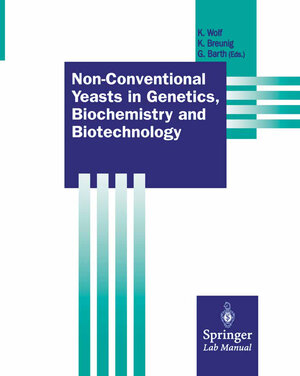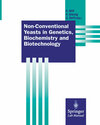
From the reviews:
„This volume is a book … with 67 practical experiments on different aspects of 15 non-conventional yeasts species in the area of genetics, biochemistry and biotechnology. … can be used both as an introductory course on non-conventional yeasts and also for advanced course on genetics, biochemistry, fermentation chemistry and biotechnology. The different aspects covered in this book in a precise way can usefully support the work of all researchers in different fields of yeast biochemistry and biotechnology.“ (Bianca Maria Ranzi, Annals of Microbiology 53 (4), 2003)
Non-Conventional Yeasts in Genetics, Biochemistry and Biotechnology
Practical Protocols
herausgegeben von Klaus Wolf, Karin D. Breunig und Gerold BarthMost information on yeasts derives from experiments with the conventional yeasts Saccaromyces cerevisiae and Schizossaccharomyces pombe, the complete nuclear and mitochondrial genome of which has also been sequenced. For all other non-conventional yeasts, investigations are in progress and the rapid development of molecular techniques has allowed an insight also into a variety of non-conventional yeasts.
In this bench manual, over 70 practical protocols using 15 different non-conventional yeast species and in addition several protocols of general use are described in detail. All of these experiments on the genetics, biochemistry and biotechnology of yeasts have been contributed by renowned laboratories and have been reproduced many times. The reliable protocols are thus ideally suited also for undergraduate and graduate practical courses.



